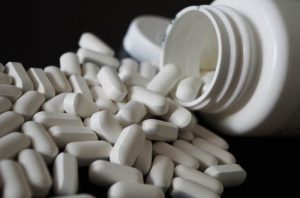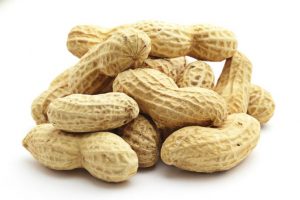With protein powders having successfully crossed over from niche bodybuilding product to the mainstream, the next supplement being pushed by the fitness industry to the average gym-goer are BCAAs.
These are Branched-Chain Amino Acids, and according to MyProtein, are rapidly growing in popularity amongst more mainstream health and fitness consumers.
Usually consumed in the form of a powder which is added to water to create a translucent liquid, gym-goers can be seen downing BCAAs pre-, during and post-workouts, and also sipping throughout the day.
But what are they for? And do you really need them?
What are BCAAS?
BCAAs are made up of three of the nine essential amino acids: leucine, isoleucine and valine – they account for approximately 35 per cent of essential amino acids in muscle proteins.
Protein itself is made up of around 20-22 amino acids, nine of which are classed as ‘essential’ because we can’t make them in the body,We therefore need to get these nine amino acids from protein sources in the diet. We can make the non-essential amino acids in the body. BCAAs can be broken down in muscle, whereas the other essential amino acids are broken down mainly in the liver.
What are BCAAs supposed to do?
The idea behind BCAAs is that they will help build muscle, prolong exercise capacity and spike muscle protein synthesis (due to the leucine in particular).
Many fitness fanatics swear by BCAAs, sipping them throughout the day, during workouts and after a heavy gym session.
Why take BCAAs as well as protein shakes?
Whilst protein shakes are made to be consumed post workout to help repair muscle fibres, BCAAs can be consumed throughout the day to give your muscles a constant supply of amino acids.
According to Blow, BCAAs are useful because they contain no carbohydrates or fats, unlike protein shakes: “So if you’re on a calorie deficit or fat loss plan and you want to increase lean muscle mass, you can boost your essential amino acid intake with no extra added calories.”
However, the idea that BCAAs don’t contain calories is actually a myth.
Are there calories in BCAAs?
BCAA’s contain six kcal per gram compared to normal whey protein which is four kcal per gram. “They basically do the same job as whey, not as well, for more calories, at a higher cost,
Part of the hype behind BCAAs is that they contain a 2:1:1 ratio of the amino acids leucine, isoleucine and valine, You can achieve this same ratio with 0.5 scoops of whey (about 15g) compared to 10g of BCAAs. The whey contains more protein and is around 50 per cent of the cost.”
A normal serving of 10g of BCAAs would be 40 calories.
Do the experts recommend them?
Every personal trainer and nutritionist not affiliated with a supplement brand we spoke to said they would not recommend people take BCAAs. What’s more, BCAAs do not yet hold EU approved health claims as there isn’t enough evidence to meet their rigorous standards.
There is a lack of reliable research evidence showing that BCAA supplementation (when total daily protein intake is already optimised) does anything other than suck your wallet dry,Regarding the claim that they increase exercise capacity, BCAAs have been shown to have no effect on endurance in nine out of 13 studies where this was tested. Of the studies investigating BCAAs’ effect on strength, power or body composition, eight out of 12 studies showed no positive effects,BCAAs have been used as appetite stimulants in anorexia patients to encourage weight gain, so they may be hindering your fitness goals.
There is some evidence to suggest they may help with muscle recovery but no more than can be gained through an adequate diet,A handful of peanuts would contain the equivalent of 11 BCAA supplement pills, so always we can get all our body requirement of BCAA from a natural source which is more safe
 musclesroom musclesroom is a designed website persons interested in fitness and supplements
musclesroom musclesroom is a designed website persons interested in fitness and supplements


